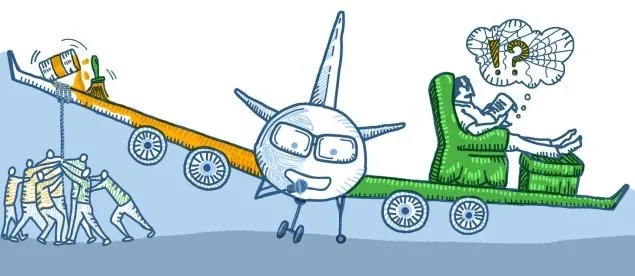prasad1
Active member
In India, the media has been substantially growing since the 1990s. With print media, television, websites, blogs, twitter and a competitive publishing industry, there is a growing demand for opinions and comments on matters of public concern. Television channels are criticised for giving more opinion than reporting facts. Opinion pages in newspapers have an extremely wide readership, in print and digital. There is a growing demand on the Internet for alternative media, and blogs are becoming influential platforms for critique and dissent.
The public intellectual market is only partly about the content; it’s a lot more about reputation and credibility. Mr. Posner refers to the Aristotelian category of “ethical appeal” in the public intellectual rhetoric. Ethical appeal is an appeal to authority, credentials and character rather than the merit of the argument. For instance, some Nobel laureates who would’ve spent much of their lives in isolated research in laboratories, suddenly, on winning the prize, find a voice to comment on peace and social welfare. India has some famous ‘IIT-IIM graduates turned novelists turned public intellectuals’ who do the same. The same logic also grants legitimacy to the several IT moguls and business tycoons to impose their ideas of politics, welfare and justice, even when the content of their arguments deserves no merit.
This raises two important considerations. One is that we need to understand the special nature of this neoliberal demand in order to think about the skewed nature of supply. The nature of this demand is so highly commodified and overwhelmingly materialistic that sometimes the intellectual class resists acting in bad conscience, refusing to be objectified by such a market. The demand for intellectuals in mainstream media is not for a critical or radical politics, but for tacky commentary.
The second point is that younger academic intellectuals are yet to grapple with their identity in these growing, private and wealthier academic spaces. The dilemma is between our cultural baggage of the ‘jhola carrying left-liberal professor’ imagination, vis-à-vis the privileged, consumptive careerism in private universities and think tanks, travelling for international conferences. Until we grapple with this dilemma of identity and location in the academic markets, our actions will continue to be confused and fickle. The silence of scholars that Professor Thapar laments is due to the staleness and failure of the left-liberal scholars to stand up and face these new challenges.
The rise of the liberal-right intellectual - The Hindu

